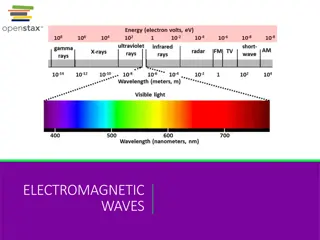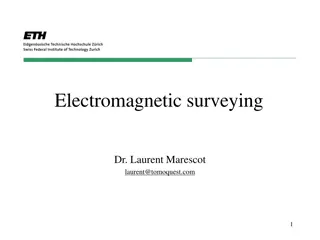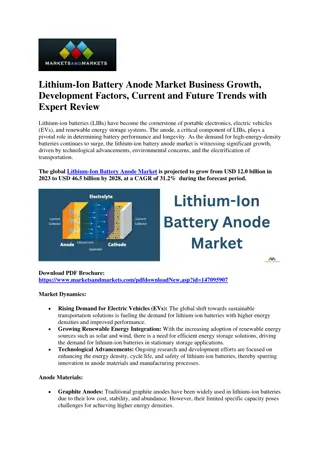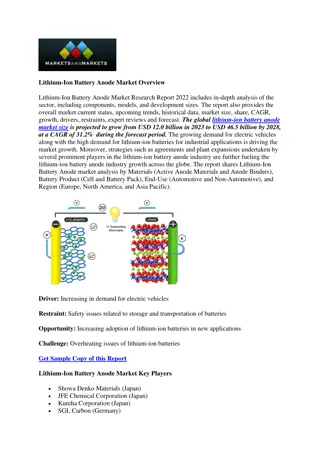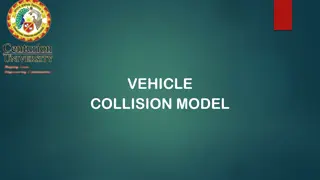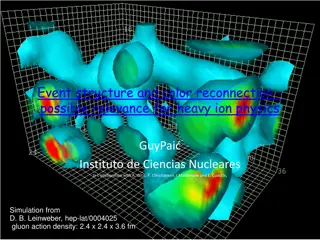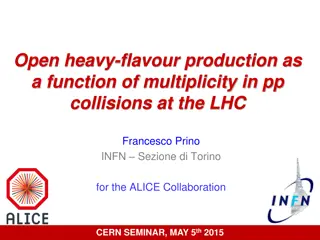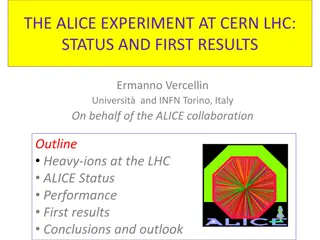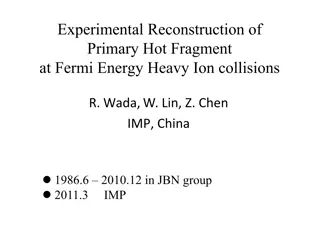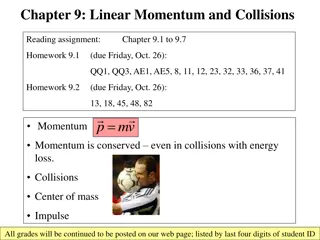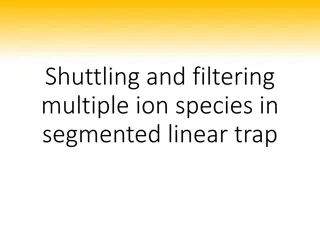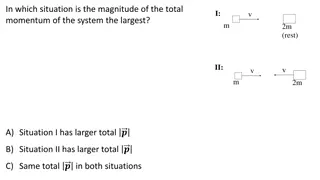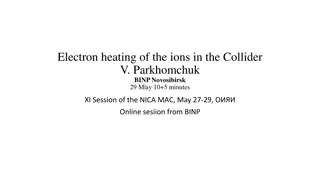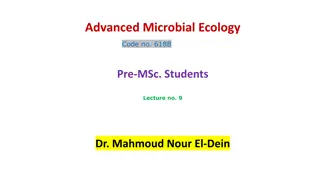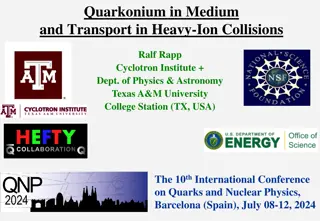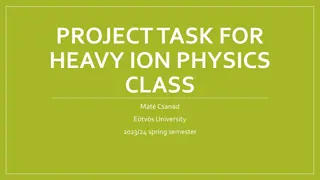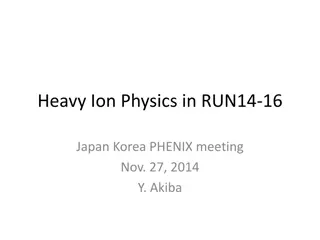
Electromagnetic Fields with Electric and Chiral Conductivities in Heavy-Ion Collisions
Explore the intricate dynamics of electromagnetic fields in heavy-ion collisions, focusing on electric and chiral magnetic conductivities. Delve into the framework for solving these fields, analytical and numerical results, and the implications of magnetic strength in such collisions. Gain insights into the estimation of electromagnetic fields, charge separation effects, and the behavior of charged particles in various mediums. This work sheds light on the complexities of EM fields and their significance in high-energy physics.
Download Presentation

Please find below an Image/Link to download the presentation.
The content on the website is provided AS IS for your information and personal use only. It may not be sold, licensed, or shared on other websites without obtaining consent from the author. If you encounter any issues during the download, it is possible that the publisher has removed the file from their server.
You are allowed to download the files provided on this website for personal or commercial use, subject to the condition that they are used lawfully. All files are the property of their respective owners.
The content on the website is provided AS IS for your information and personal use only. It may not be sold, licensed, or shared on other websites without obtaining consent from the author.
E N D
Presentation Transcript
Electromagnetic fields with electric and chiral magnetic conductivities in heavy-ion collisions Li Hui( ) lihui12@mail.ustc.edu.cn University of Science and Technology of China This work is cooperate with Qun Wang, Xin-Li sheng 2016.8.22
Outline Introduction and the motivation The framework of solving the fields Analytical and numerical results Summary
Magnetic strength in HIC 0.6 G The Earth s magnetic field (weak) The strongest steady magnetic fields achieved so far in laboratory ?.? ???G The magnetic field existed in the compact stars ????~????G Heavy ion collisions produce the ever strongest magnetic field in the universe ????G
Estimation of EM field in HIC High energy HIC = 2/ ?? ? = Electric field in C.M.S frame ? 1 1/ 2 Coulomb s Law Lorentz transformation to boost into the Lab frame Strong Interaction Imagine two nuclei (Au+Au) fly across each other oppositely with (A=197, Z=79, s = 200GeV, =106, ??= 0.999956 R=1.2?1/3) ????~10?????~1019????? Scaling law Kharzeev, McLerran, Warringa (2008), Skokov (2009) Deng &Huang (2012)
Charge separation effect in HIC STAR PRL 103, 251601 (2009) ALICE PRL 110, 012301 (2013) However, the interpretation of chiral magnetic effect is under hot debate due to the background contribution of the elliptic flow.
EM fields of charged particle in vacuum (1) (2) Retarded potential Lienard-Wiechert potentials Magnetic field falls rapidly?~1 ?3 In non-relativistic frame, ?? ? Eq.1&2 reduce back to Coulomb s Law and Biot- Savart law
EM fields of charged particle in medium In conducting medium with constant EM fields can last longer ?~1 ?2 Mclerran and Skokov, 2013; Tuchin, 2014
We start from the Maxwell-Chen-Simons equations the Ohm current and the CME current For simplicity, and are constant.
Green function method represents the related fields represents the source term
For convenience, we transform into the momentum space In Momentum space Fourier transform The matrix form of eq.(3) in the momentum space (4) M as a matrix We will obtain the form solution of the field
In Momentum space a charged particle moving along the z direction Coordinate Space Momentum space Charge current Charge density In momentum space, the magnetic field reads
Magnetic field : algebraic form Integral over is more complicated Umut G ursoy, Krishna Rajagopal(2014)
EM field in nuclei collisions The geometry illustration UrQMD model give the configuration of the charged particles The UrQMD Model is used to calculate the initial state of a heavy ion collision for the hydrodynamical evolution The parameter b=4, P and Q points are (6,0,0) and (0,6,0) ,respectively. S. A. Bass et al., Prog. Part. Nucl. Phys. 41, 255 (1998) M. Bleicher et al., J. Phys. G 25, 1859 (1999)
EM field in nuclei collisions The contour plots for the electric and magnetic field
EM field in nuclei collisions The vector fields for the two transverse components ??and ??
EM field in nuclei collisions The asymmetry for the magnetic field Effect of Radial component opposite sigh Azimuthal part same sigh
Summary We derived algebraic formula for electric and magnetic fields of a moving point charge in conducting medium with and ??, which can be used in simulation. Due to ??in HIC, the symmetry of fields in the y-direction is broken.

